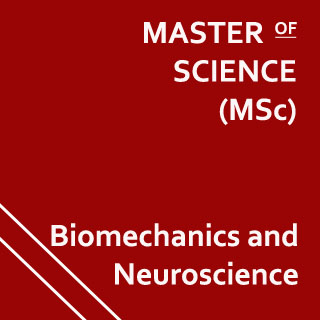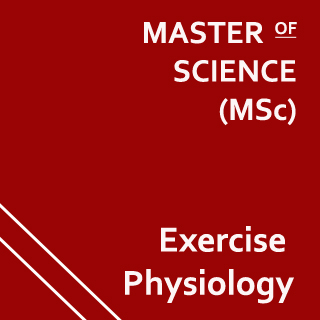

Biomechanics and Neuroscience
Biomechanics and Neuroscience researchers work to better understand human structure and function interactions between biology (muscles, bones, joints), mechanics (forces, acceleration, motion) and/or the nervous system (brain, nerves, genetics). We aim to improve our understanding of body movement in health and disease, within different population groups (e.g. men and women), across the lifespan (from young to old), and in a variety of settings (e.g. sport, workplace and rehabilitation). From this research approach, in turn, we can design and implement intervention strategies to augment health and well-being.
Our research experts in this group study, for example:
- Mobility in healthy, aging and in people with disabilities such as stroke and Parkinson’s disease from a brain and behavior perspective;
- The impact of training, fatigue and musculoskeletal disorders on posture, motion and function of athletes and workers;
- How ergonomic interventions such as standing desks affect neuromechanical and performance characteristics;
- Testing of novel sport equipment design and their impact on athletic performance in running and skating;
- How biomarkers can help detect functional impairments associated with juvenile diseases;
- The epigenetic modifications associated with brain and spinal cord postnatal development particularly affecting neuroplasticity.
Professors in Biomechanics and Neuroscience:
Exercise Physiology
Our Exercise Physiology faculty members are broadly interested in the effects of exercise and physical activity on functional, health and performance outcomes in healthy, clinical, and athletic populations.
Specific areas of interest include: muscle, cardiovascular and respiratory (patho)physiology; nutrition and exercise metabolism; musculoskeletal health; body composition; aging; prevention and management of chronic disease; and rehabilitative exercise training, including prehabilitation.
Our research methods span from basic to clinical, including: clinical cardiopulmonary exercise testing with pulmonary gas exchange and metabolic analyses; respiratory and limb muscle force assessment; electromyography; dual-energy x-ray absorptiometry; magnetic resonance imaging and spectroscopy; ultrasound and near infrared spectroscopy; microneurography; stable isotope tracers; biochemical and molecular analyses of cardiovascular, pulmonary, metabolic, muscle and bone responses to exercise and training.
Professors in Exercise Physiology:
For graduate program-related questions please contact the KPE studentaffairs.kpe [at] mcgill.ca (Student Affairs), or the Graduate Program Director, studentaffairs.kpe [at] mcgill.ca (Dr. Shane N. Sweet).
